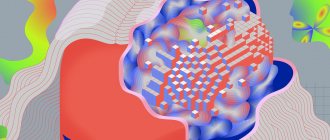A fairly large percentage of older people are susceptible to such an unpleasant disease as involutional presenile psychosis.
This is a mental illness that is characterized by such deviations as the constant presence of depressive states, the appearance of paranoid thoughts, delusions of harm, and hallucinations.
These symptoms can develop either separately from each other or simultaneously. Typically, the depth and nature of symptoms directly depends on the person’s age. For example, among people under 65 years of age suffering from mental illness, approximately 5% suffer from involutional psychosis. With increasing age, senile psychosis occurs more and more often, reaching 10%.
The disease develops gradually, quite slowly, but in some cases it can appear quite unexpectedly. As a rule, this is accompanied by strong emotional shocks, mental trauma, or some other somatic condition experienced by the individual.
Initially, everything may simply look like excessive concern for one’s health or the health of loved ones, and worries develop for a variety of reasons. Over time, seemingly insignificant symptoms develop into full-blown depression, delusions and paranoia.
The disease is more common among women.
Differences from senile psychosis
Do not confuse involutional psychosis with senile psychosis. In the first case, the main causes of the disease are mainly internal factors:
- character type;
- suspiciousness;
- anxiety;
- serious mental shocks for various reasons.
Senile psychosis (or, as it is also called, senile psychosis) develops for completely different reasons: it may be physical inactivity, disruption of the functioning of the sensory organs, poor poor-quality nutrition, and sleep problems.
In addition, senile psychosis can be quite irregular - at one time its symptoms increase significantly, and at another almost completely disappear. If we talk about involutional psychosis, then it is characterized by a more uniform, stable development.
Factors provocateurs
Despite the fact that doctors and specialists identify some important factors that are believed to be capable of triggering the development of involutional psychosis, in fact, the etiology of this disease is virtually unknown.
Usually, doctors can only detect the presence of a disease based on its specific symptoms and take therapeutic measures, but it is very, very difficult to predict the development of disorders or prevent it in advance.
Possible triggers include:
- Bad heredity
. If someone in the family has experienced similar deviations, then the likelihood that the episode will repeat increases. - Being in a difficult, tense emotional environment for a long time
, this can include family scandals, a difficult work rhythm, etc. - Severe nervous and mental shocks
as a result of any traumatic events. Again, the personality of the individual himself and his heredity are also very important here. For one person, an event will not cause a special reaction, but for another it can become a trigger for the development of mental illness.
Who is at risk
Presenile and senile psychoses pose the greatest danger to older people, and especially to women. Cases of the disease have been reported in people over 45 years of age.
Most often, a complex of disorders is observed at the age of 50-60 years. If the patient’s life involves constant nervous shock, stress and depression, and relationships with family and loved ones leave much to be desired, then the likelihood of mental illness increases many times over.
Definition of concepts and characteristics
Let's understand the basic terms and concepts.
- Paranoid disorder is a personality disorder that is characterized by distrust of people, suspicion, a sense of threat from others, resentment, and a tendency to view people's statements as offensive.
- Paranoid syndrome is a complex of symptoms including delusions, hallucinations and pseudohallucinations, as well as ideas of persecution. The severity of this syndrome characterizes the severity of paranoid personality disorder.
There are the following types of paranoid syndrome:
- affectively paranoid syndrome, which is characterized by manic or depressive delusions that predominate over other symptoms;
With manic delirium, delusions of grandeur are expressed, and with depressive delirium, persecution is expressed. - depressive syndrome . It is expressed by the depressive state of the patient, who is in despair, depressed and often tearful.
Further:
- Paranoid state is a chronic delusional disorder that lasts more than three months without organic brain pathology. There are no hallucinations in a paranoid state.
- Paranoid psychopathy is characterized not by paranoidity as such, but by a tendency to overestimate or, on the contrary, underestimate one’s own qualities, and to exaggerate the significance of the statements of others directed at oneself.
The paranoid psychopath is characterized by self-centeredness, sensitivity to situations that affect his interests, as well as a perverted interpretation of surrounding factors, as well as confidence in his own rightness. - Paranoid delusion is a thinking disorder expressed in a person’s belief that others are trying to negatively influence him or cause him harm.
- Paranoid ideas are less pronounced than in delusions, a person’s ideas that someone is threatening him, persecuting him, or treating him unfairly.
Complex clinical picture
Presenile psychosis is characterized by the following main signs and symptoms:
- Old people experience hallucinations, illusions and auditory deceptions
. This is manifested by the fact that the patient claims to hear the whispers of people who are preparing a vile conspiracy against him, noise behind the wall, which is not actually observed, the sound of footsteps even in an empty apartment. - Complaints about non-existent, fictitious problems
. For example, a patient may claim that his stomach or liver hurts because his food was poisoned by ill-wishers who are persecuting him. The so-called delusion of damage develops. - Senile psychoses are characterized by a sharp change in appearance
. If suddenly an elderly person completely unexpectedly and quickly becomes decrepit and loses a lot of weight, then this most likely indicates serious problems in his mental state.
Also, presenile mental disorders are characterized by symptoms of Kraepelin's disease associated with the presence of an anxious depressive state. This is most often expressed as:
- lack of normal sleep, inability to fall asleep on time;
- muttering incoherently to oneself, slurring words and sentences that are very difficult or impossible to understand;
- Outwardly, an elderly patient may show severe confusion, an inability to concentrate his attention on certain objects, people, or conversation.
In medicine, it is customary to distinguish three main forms of presenile psychosis:
- involutional paranoid;
- delirium of damage
- involutional melancholy.
Let's look at their features and main differences in more detail.
Paranoid manifestations and delusions of harm
Involutional paranoid is characterized by the fact that the patient is prone to various delusional disorders in which he views his relationships with his own loved ones, friends, family members, and any acquaintances in a completely perverted, incorrect, and often very aggressive way. An old person may develop persistent obsessive delusions that take over his thoughts and prevent him from concentrating on anything else.
Very often, patients with involutional paranoid develop the so-called delusion of harm - it seems to them that the people around them, in particular family members, want to cause them some harm, steal, injure them, and the like. Since the social circle of such patients is usually very narrow and limited to the same family, their fears to a stranger may sometimes even seem convincing. In reality, there is a delusion of damage.
Features of melancholy
Involutional melancholia can be divided into two subcategories: malignant (Kraepelin's disease) and senile. The symptoms of both increase rather slowly over a long period of time.
Of course, any psychological trauma can significantly accelerate their development. Senile involutional melancholy is accompanied by a constant feeling of anxiety: the patient is depressed, he expresses unreasonable worries about the health of both himself and his loved ones, he may often worry about his material well-being, for some reason believing that he is in danger of trouble.
Very often, a person’s negative mood intensifies closer to the dark. Even the slightest changes in the environment, social circle or home (for example, the apartment was cleaned) can cause attacks of anxious depression and anxiety.
It is anxious depression that is the main characteristic of presenile psychosis.
Kraepelin's disease (malignant involutional melancholia) is characterized by such an important difference as the presence of constant anxious arousal.
It is very difficult for the patient to concentrate, speak coherently and clearly, and fall asleep normally. Melancholy occurs in people after 65 years of age, when brain neurons significantly reduce their activity. It is during this period that the individual is most susceptible to a variety of mental disorders.
How can one suspect from the outside?
Many symptoms of mental illness can only be identified by a doctor; in order for an ordinary person, for example, a relative of a patient, to understand that his relative has involutional psychosis, he needs to know the characteristic signs of this deviation:
- whether the alleged patient has delusions of persecution and harm, unreasonable constant anxiety and distrust of others;
- it is necessary to assess whether the patient can speak clearly, adequately, in accordance with the topic of the conversation;
- it is necessary to assess whether a person can fall asleep normally, whether any disturbing thoughts that have no basis disturb him at night.
These manifestations will help you understand that a person is developing a mental illness and promptly consult a doctor.
If suspicious symptoms appear, you should definitely consult a doctor for a diagnosis. This is the only way to clearly confirm or refute your suspicions.
The doctor will examine the patient and ask him a series of leading questions that will help him clearly understand what problem he is dealing with.
Classic course of the disorder
Paranoid refers to disorders that develop gradually.
At the initial stage of the disorder, the patient’s behavior can be considered as character traits, but as the disease progresses, the changes progress.
The following behavioral features are characteristic of individuals suffering from delusional psychosis:
- high sensitivity to failures, strong feelings about the refusal received;
- incorrect interpretation of current events and actions of surrounding people, excessive touchiness (the habit of taking everything “personally”);
- increased sense of self-worth;
- persistent stereotypes and lack of flexibility (a person lives by the principle “I’m always right”);
- constant dissatisfaction, inability to forgive insults (both real and imagined), attitude towards others in a condescending manner;
- increased suspicion towards family members and surrounding people.
Depending on the type of disease, the list of symptoms may be supplemented by hallucinations, aggression and excessive nervousness.
Therapy methods
One of the main principles of treatment of involutional psychosis is the principle of “do no harm.” It is necessary to find such an approach to treatment in order to exclude further aggravation and development of disorders, and not give rise to even greater mistrust on the part of the patient.
If you prevent the development of a chronic form of the disease, then this can already be considered, in some way, a significant victory against psychosis.
Medications play a major role in the treatment process. The number of items and dosages are strictly limited, since we usually have to deal with older people who simply cannot tolerate a large amount of medications taken.
Antidepressants Pyrazidol, Zoloft, Tianeptine, Ludoimil, Anafranil and many others are actively used. The main requirement for medications is that they must have a minimum of possible side effects.
Neuroleptics with sedative effects are often prescribed. They help suppress feelings of anxiety, relieve excitement of the nervous system, and fall asleep normally.
A sedative is best for people with Kraepelin's disease. As for involutional melancholia, the main role is played by neuroleptics with a psychotic effect. They help to cope with delusions and overcome various hallucinations, including auditory ones.
It is worth mentioning separately the importance of friendly conversations and psychotherapy sessions. This measure helps the patient become calmer, more balanced, and at least get out of an anxious state.
Paranoid accentuation: recommendations
When communicating with a person with paranoid accentuation of character, you should follow the following recommendations that will help you not provoke the manifestation of his inherent negative character traits:
- If possible, avoid situations in which you need to criticize him. If this cannot be done, then it is better to first mention his competence and past merits , and then make comments - this way the criticism will not be perceived too painfully.
- Ask such a person to communicate with people who cause him a sharply negative reaction .
- To impose solutions to issues that are not within the scope of his interests and hobbies, as well as routine work that is not interesting to him.
It is quite difficult to establish contact with people with paranoid accentuation of character, in which they will see in their interlocutor a person whose opinion will be significant for them , and it is quite difficult to gain their authority.
The main positive feature of individuals with paranoid accentuation of character is their determination.
When communicating with them, it is very important to keep this in mind - they favor people who respect and share their interests . If irony is expressed about their activities, this will cause an extremely negative reaction on their part.







